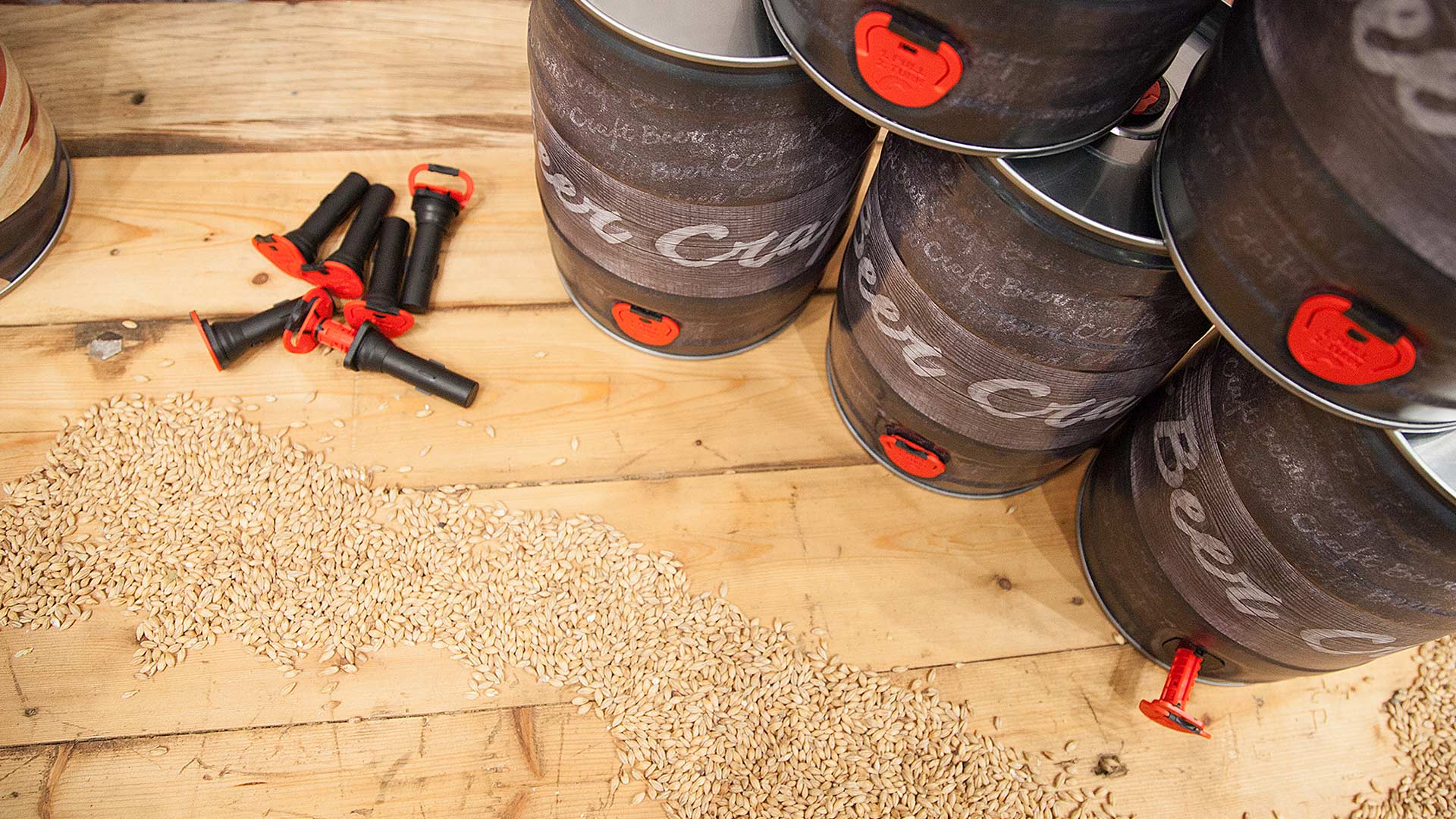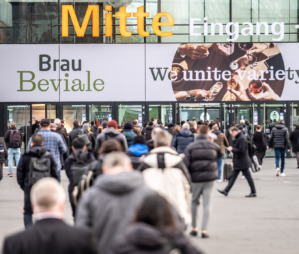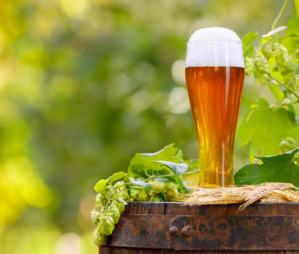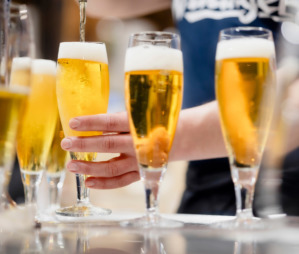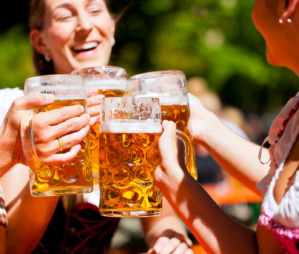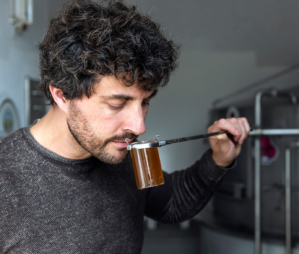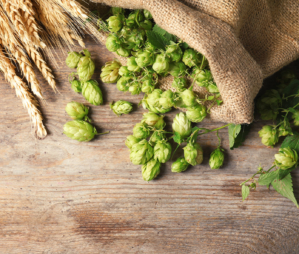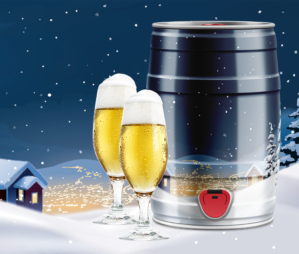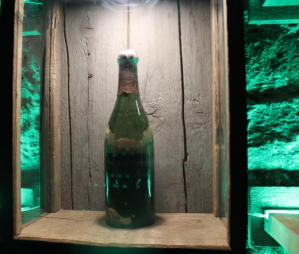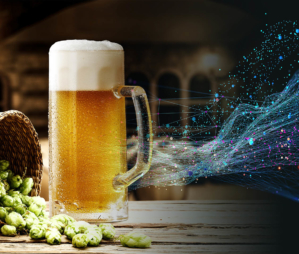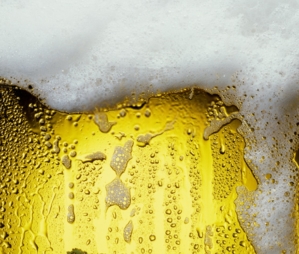The BrauBeviale 2024 in Nuremberg brought together over 31,000 industry professionals and 968 exhibitors to explore the latest trends and innovations in the beverage sector. Highlights such as the European Beer Star awards, the new Future Award, and engaging discussions on digitalization and sustainability showcased the dynamic and forward-thinking nature of the industry. A special emphasis was placed on innovative energy-saving solutions, creating momentum that extends far beyond the trade show itself.
read moreAll posts from category know-how
Wheat Beer – A Revenue Generator Beyond Bavaria!
Wheat beer combines tradition with diversity and serves as an indispensable revenue driver for breweries and beverage retailers. With its rich history, wide variety, and current trends such as non-alcoholic options, it remains globally popular. The mini keg presents additional opportunities: it blends social enjoyment with the convenience of self-tapping, making it especially appealing in export markets like Asia. Wheat beer continues to be a surefire success—whether in bottles or party kegs.
read morePils: Germany’s most popular beer type
For decades, Pils has been Germany’s most popular beer, accounting for about two-thirds of the total beer consumption. Originally created in the 19th century in the Bohemian city of Pilsen, it quickly gained popularity due to its clear, golden color, lean body, and distinctive hop bitterness. In particular, Pils gained long-term popularity in Germany as a refreshing and well-balanced beer, favored by consumers. Major breweries like Bitburger, Krombacher, and Jever have shaped the market with their Pils offerings, consistently delivering high quality that is in demand both in restaurants and retail.
read moreThe Helles Lager on the Rise!
Helles is a mild, pale-golden beer that was originally developed in Bavaria and has since become widely popular throughout Germany. While it is deeply rooted in Bavarian beer culture, Helles is also gaining popularity in northern Germany, particularly in cities like Hamburg and Berlin. We describe why helles lager on the rise is more then just a trend!
read moreNon-alcoholic organic beer as a market opportunity: Riedenburger on course for growth
Despite declining sales figures, there has been a trend in beer consumption for years: Regional breweries and non-alcoholic beer are becoming increasingly popular. One company that has been focusing on organic products since the early 1990s and is benefiting from the current market situation is the Riedenburger Brauhaus organic brewery in Lower Bavaria. With a wide range of traditional beers, non-alcoholic varieties, mixed drinks, and products made from ancient grains, Riedenburger managed to achieve a 3.5% increase in sales last year. We explain how regional non-alcoholic organic beer as a market opportunity works.
read moreSustainability for breweries – the challenge for the future!
Sustainability is on everyone’s lips, especially when it comes to energy-intensive industries, including breweries. That’s why a lot has been happening in the brewing industry regarding sustainability, and it’s a positive development. Breweries benefit from renewable energy sources and water and soil protection programs, creating a win-win-win situation for breweries, consumers, and, of course, our environment!
read moreWinter beer: A tradition with many opportunities
Seasonal products are particularly popular during the winter and Christmas season. Breweries have been ahead of this trend for centuries. Breweries have been ahead of this trend for centuries with the tradition of winter or Christmas beers, which seems more popular today than ever before. We’ll explain why the winter beer tradition presents a real opportunity for the modern beer market and how breweries can benefit from it!
read moreJunior researcher deciphers Germany’s oldest beer
As a food chemist, Stefan Pieczonka has developed an analytical strategy to make the “molecular fingerprint” of beers visible. He was recently awarded the Henrich-Funke-Pschorr Prize for his dissertation at the German Brewers’ Day. As part of his research, the 29-year-old analyzed around 500 beers, including “Germany’s oldest beer” from 1885. He told us not only what it tastes like, but also how the brewing industry can benefit from his scientific findings in the long term.
read moreIs AI changing beer brewing? – Results of the Envases survey
The media response was huge when the Beck’s brewery presented “Autonomous” in spring 2023 to mark its 150th anniversary: Germany’s first beer developed with artificial intelligence. It bumped into the middle of the public discussion around ChatGPT, which has been in full swing since the beginning of the year. Since many people have become aware of what artificial intelligence can do, a heated discourse has erupted, ranging from utmost fascination and enthusiasm on the one hand to existential fears on the other. We wanted to know: What is the brewing world’s position on the subject?
read moreBrewing beer with AI: What you should know about it
Brewing beer requires craftsmanship, passion and brewing training. But what will happen when artificial intelligence makes its way into this field as well? The fact is that, as in almost all industries, machine learning and AI will also become increasingly important in beer brewing in the future. Instead of fearing the risks, open-minded brewers should take advantage of the opportunities it presents.
read moreThe comeback of canned beer
After the introduction of the can deposit in 2003, sales of beverage cans rapidly collapsed. Metal packaging seemed to be at an end. But for some years now, demand has been rising ever more strongly. Cans are becoming increasingly popular, especially among beer drinkers – despite the fact that beer sales are steadily declining in Germany. Twenty years ago it was almost written off and sunk into insignificance, but recently the beer can has surprisingly developed into a trendy container. What are the reasons for the comeback of canned beer?
read moreCarbon dioxide shortage puts breweries in distress
At many breweries, the carbon dioxide tanks are getting more and more empty. Some have already completely used up their reserves. The reason for this is that carbonic acid, or more precisely the basic ingredient carbon dioxide, is currently in extremely short supply. While some breweries have already had to shut down their production, others are making do with unconventional fiddly solutions using substitute gas to make ends meet. Thanks to new plant technology, CO2 recovery plants could even be worthwhile for smaller breweries in the future.
read moreConvince with knowledge
Always at the top with a lot of know-how
A world market leader can only stay at the top if he can always demonstrate an advantage in knowledge. That is why ENVASES always strives for the latest studies, visions and information.
